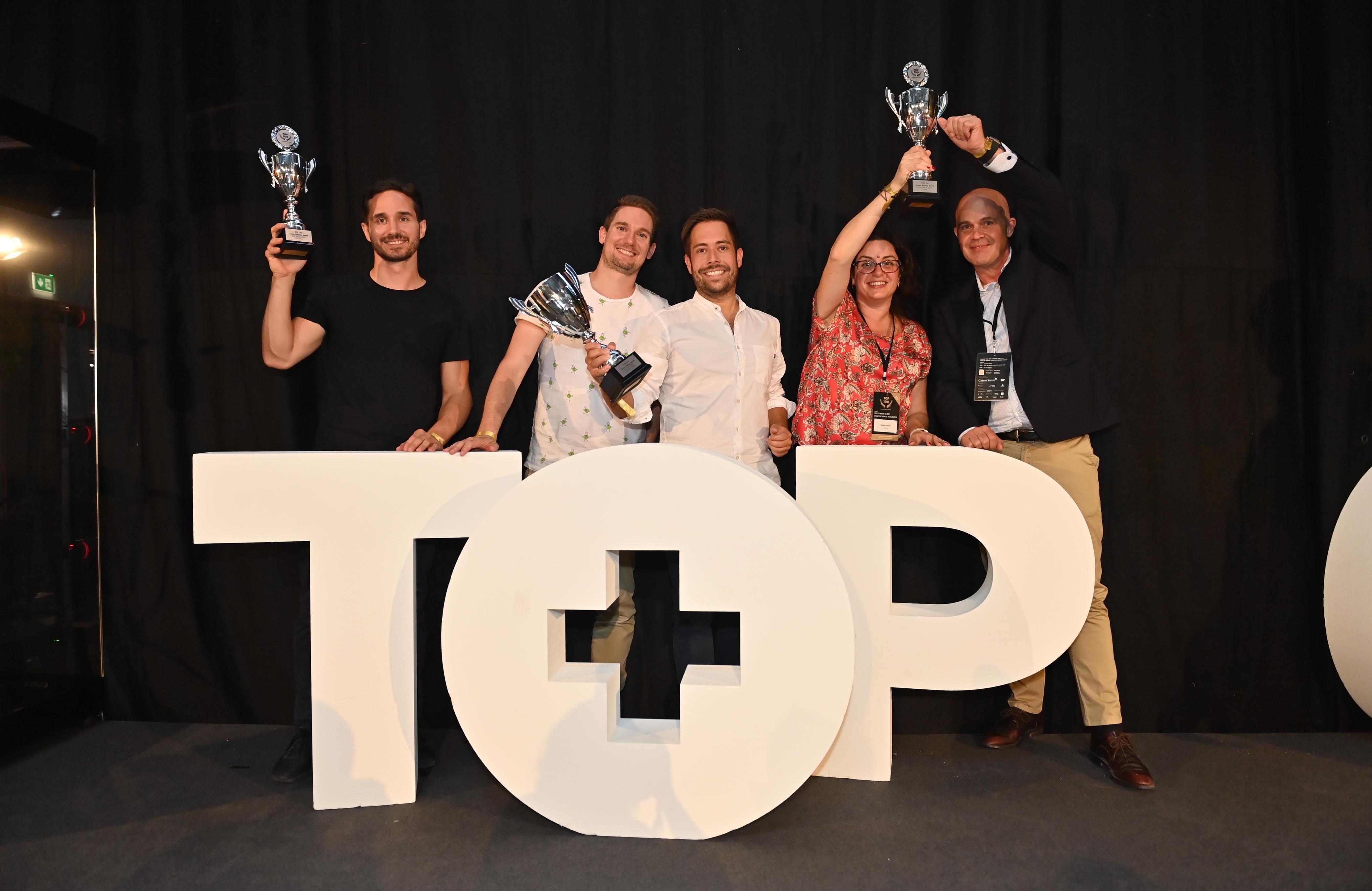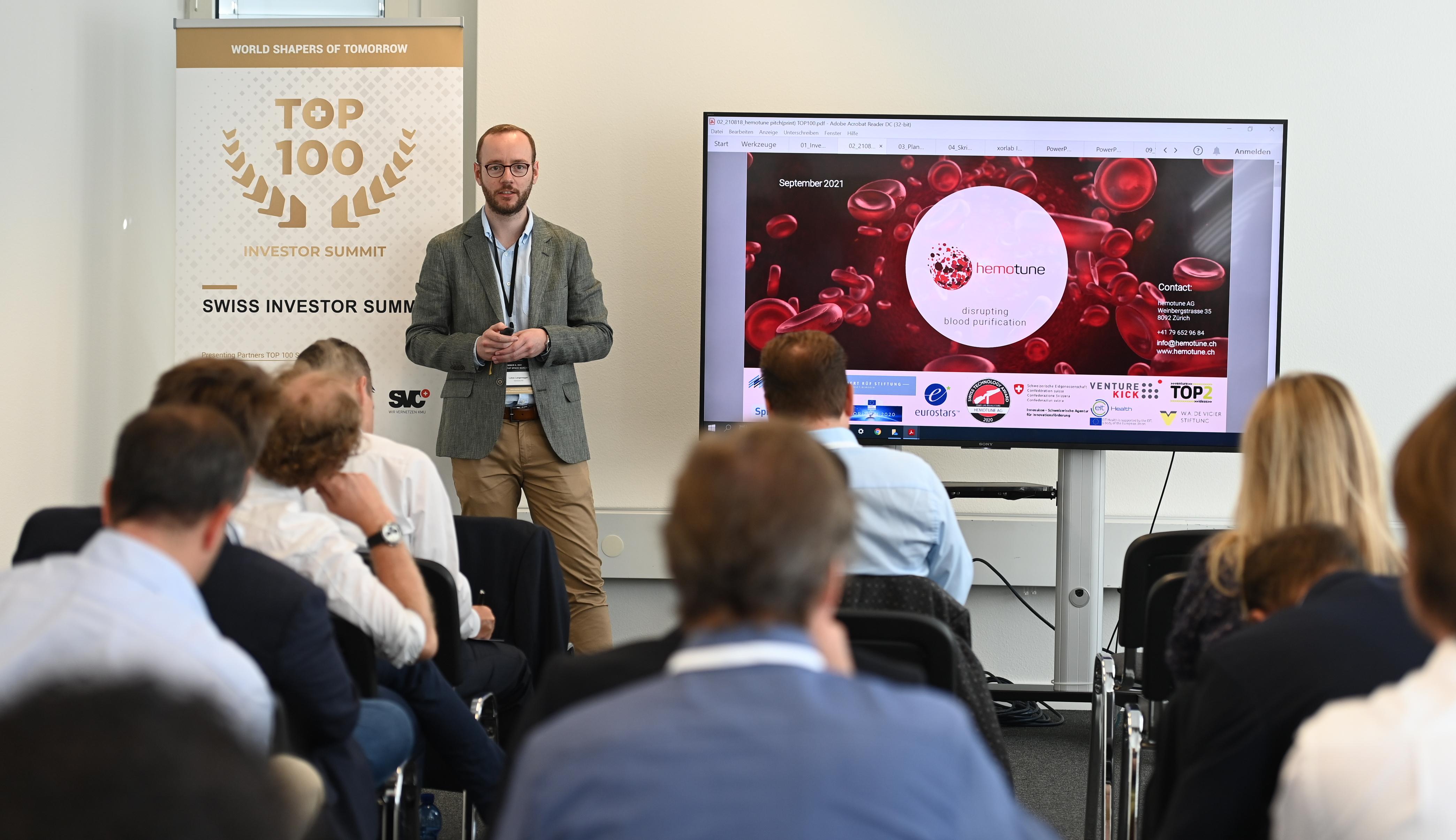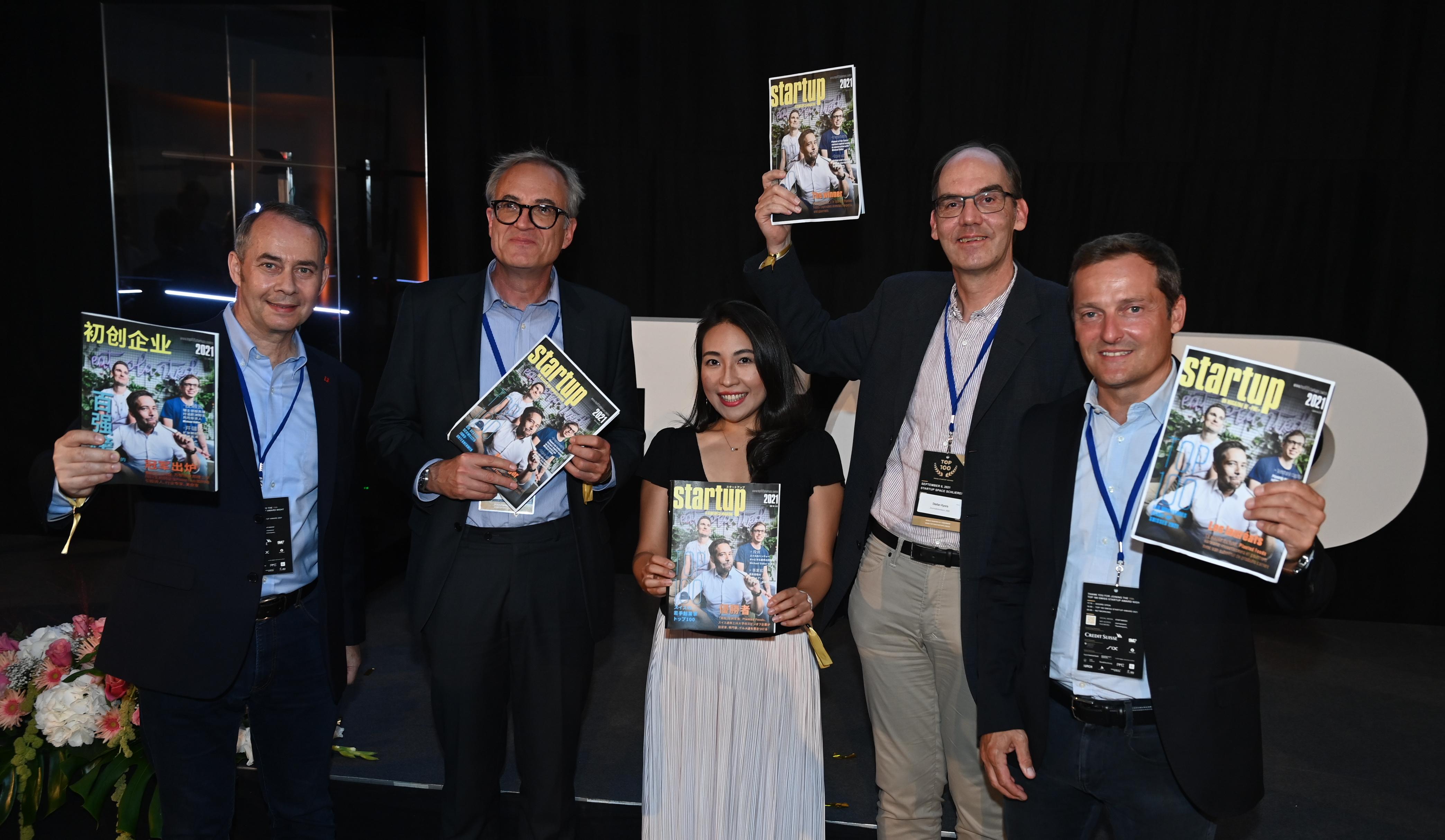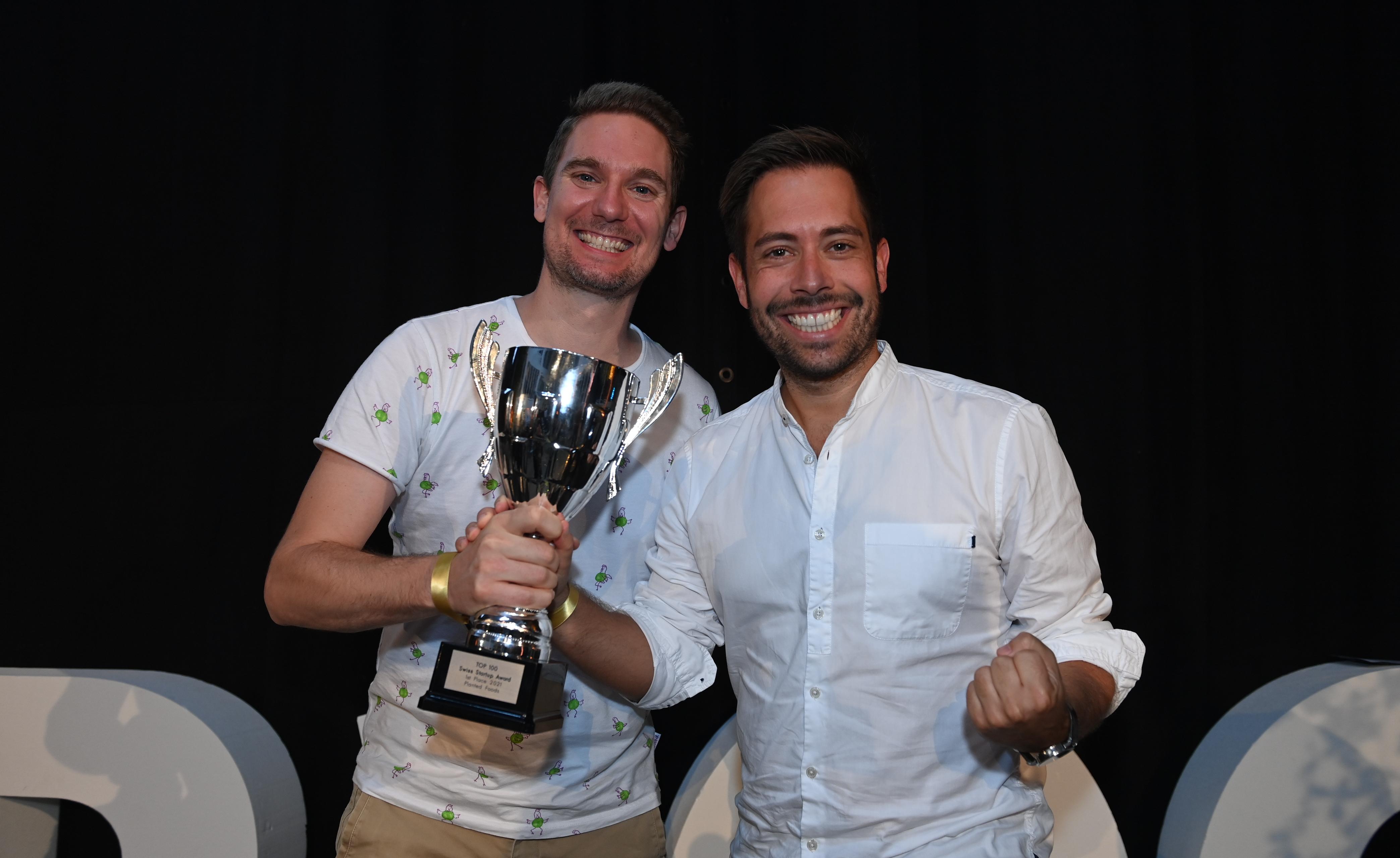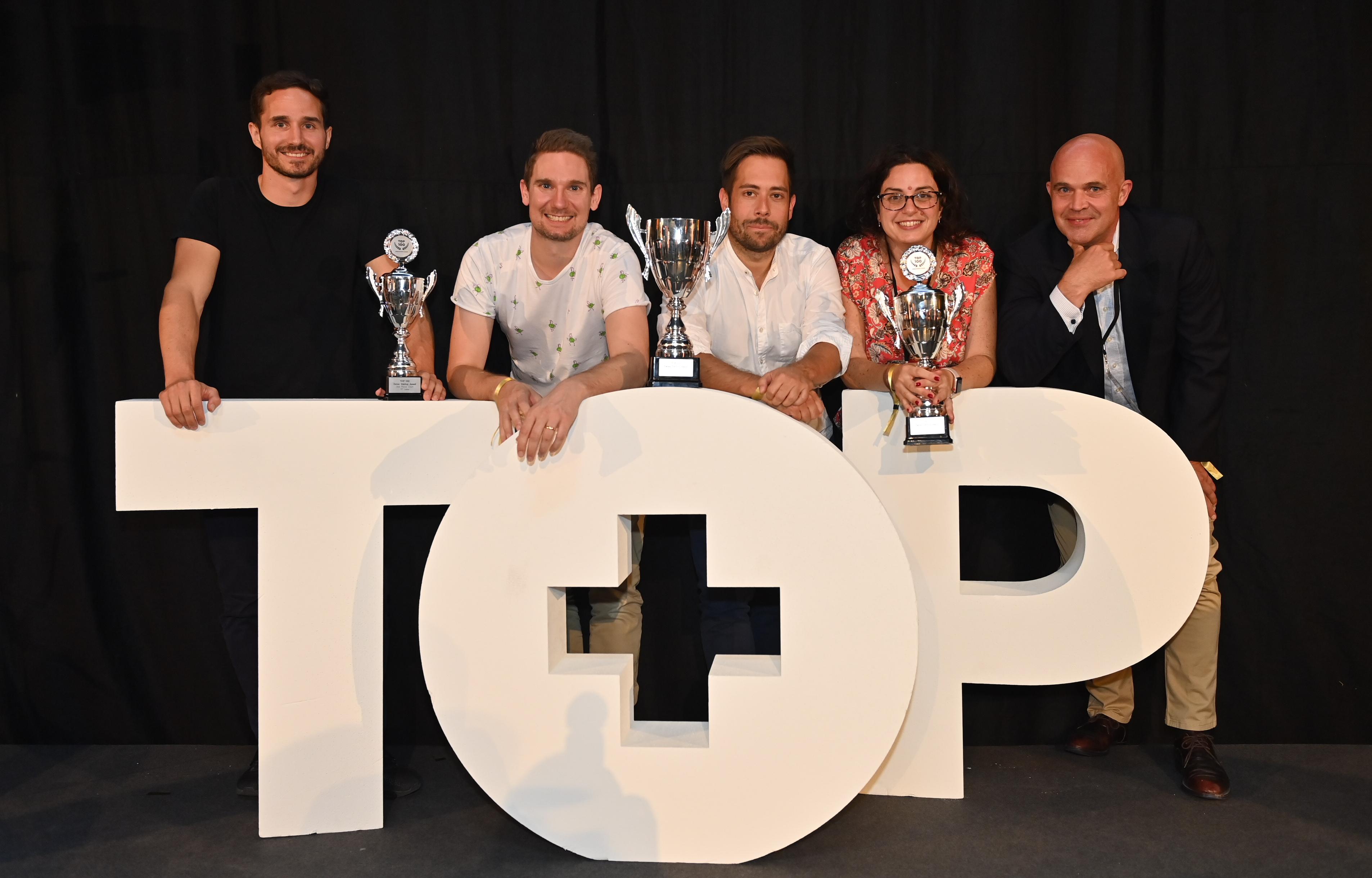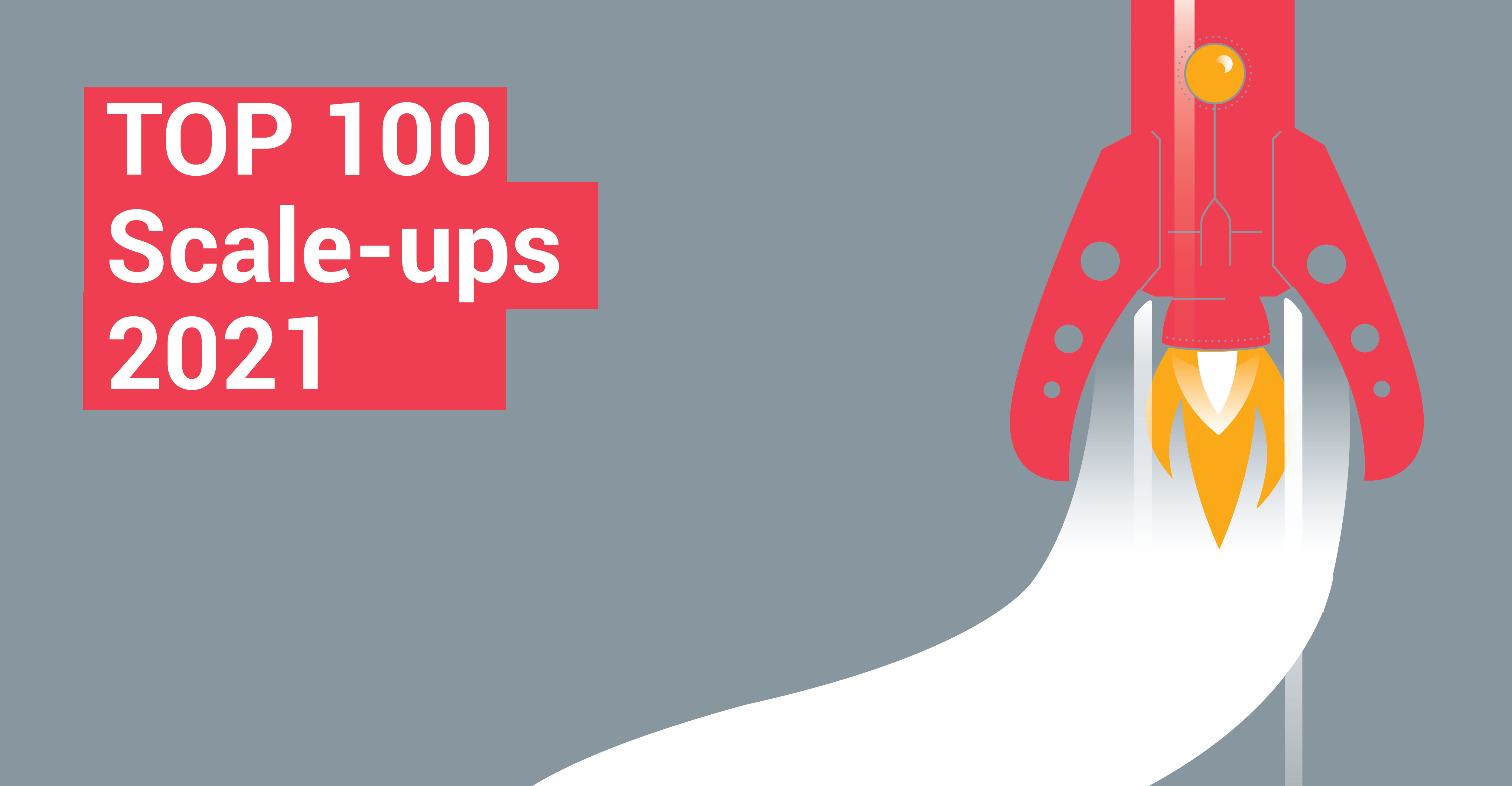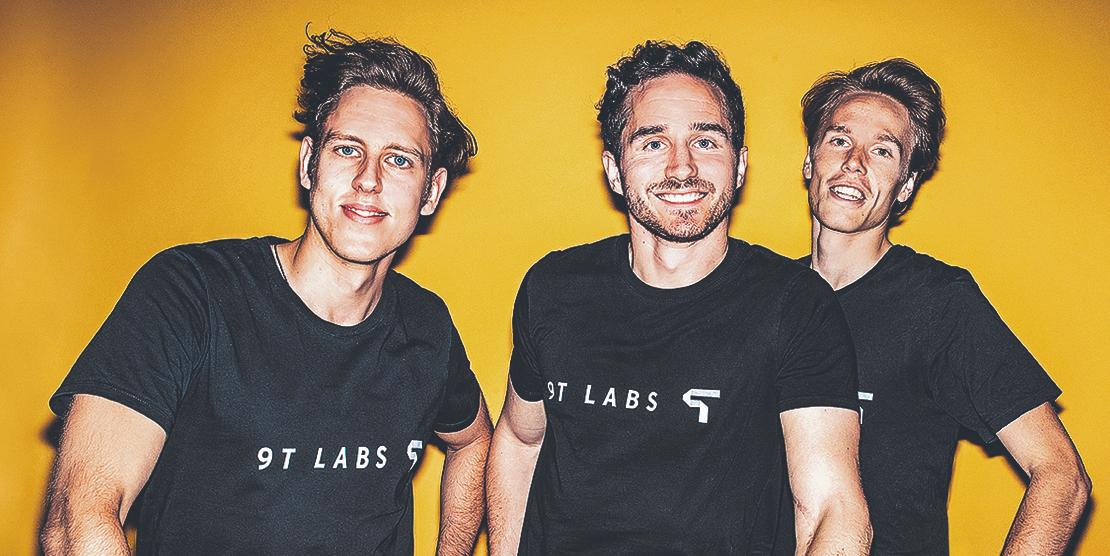9T Labs ranks third at the TOP 100 Swiss Startup Award 2021
08.09.2021 20:31
Isabelle Mitchell
Bronze at the TOP 100 Swiss Startup Award goes to Zurich-based 9T Labs. The startup creates a new way of manufacturing carbon composites: The 9T Labs all-in-one hardware, software, and material solution provide customers with an inexpensive and easy way to design and mass-produce ultra-lightweight parts in areas such as the medical industry, aerospace, and automotive markets. The engineering startup was founded in 2018 by Martin Eichenhofer, Chester Houwink, and Giovanni Cavolina and ranked sixth in 2020.

The ABB logo can still be seen on the building at Badenerstrasse 790 in Zurich-Altstetten. Dry bushings—connections between transformers and the high-voltage network—were stored here until mid-2020. Today, the space is rented to startups; a theater group has set up its rehearsal stage on the ground floor.
“Industrial areas like this can hardly be found any longer in Zurich,” said Martin Eichenhofer, co-founder and CEO of 9T Labs. He talks of a stroke of luck because he and his team develop hardware in the best sense of the word. Their business is the small and large parts that make up everything that makes life in a modern society pleasant and exciting: infrastructure, systems, machines, and devices.
The key term is fiber-reinforced plastics. Countless variants of these composites exist, but they all have one thing in common: They are extremely strong and light. Today, flat structures such as wind turbine blades or aircraft fuselages are built from composites, with the parts milled from large plates. However, because of the low volumes, production cannot be fully automated. This is where 9T Labs comes in. With custom-made 3D printers and downstream molding machines—fully integrated via proprietary software—the aim is to pave the way for industrial series production and, where it makes sense, to replace metal as a material.
 The idea arose in the course of Martin Eichenhofer’s (left) master’s thesis at the Laboratory of Composite Materials and Adaptive Structures at ETH Zurich. The 33-year-old registered his first patents as a doctoral student, and in 2018, he founded 9T Labs with fellow students Chester Houwink (middle) and Giovanni Cavolina (right). After traveling with the Swiss National Startup Team to Silicon Valley in 2019, 9T Labs raised USD 4.3 million in venture capital in early 2020.
The idea arose in the course of Martin Eichenhofer’s (left) master’s thesis at the Laboratory of Composite Materials and Adaptive Structures at ETH Zurich. The 33-year-old registered his first patents as a doctoral student, and in 2018, he founded 9T Labs with fellow students Chester Houwink (middle) and Giovanni Cavolina (right). After traveling with the Swiss National Startup Team to Silicon Valley in 2019, 9T Labs raised USD 4.3 million in venture capital in early 2020.
The founders have defined three target markets: sports and leisure equipment and the aerospace industry, where they want to score primarily with the weight advantage of their components. In the third market, medical technology, the focus is on X-ray transparency. For example, the devices used in an operating theater are currently made of stainless steel. If a CT scan is necessary during a procedure, the needles, scalpels, and clamps cast a shadow and impair the surgeon’s view. That would not be the case with tools made of plastic composites.
“In medtech, additive composite manufacturing enables completely new processes,” said Eichenhofer. In particular, it could lead to computer-navigated surgery: Next-generation surgical robots would have an undisturbed stream of images from the wound site.
It is not clear in which market the 9T Labs technology will gain a foothold first. The capital investment in the industrial goods business is high, and the procurement cycles are long. In addition, Eichenhofer and his team rarely deal with end customers—the manufacturers of helicopters, mountain bikes, or hospital equipment—but rather with their system suppliers, the first-tier suppliers.
“The collaboration usually begins with a preliminary study,” said Eichenhofer. Then the 9T Labs team in Altstetten assembles a system. It has to prove that it can produce the parts requested by the customer—for example, the suspension of a helicopter door—at the required rate and quality. In the current year alone, the Zurich-based company has performed more than 100 preliminary studies,
and a pilot phase is running with seven companies. Eichenhofer is able to name only one of these—the French Setforge Group, a global supplier to the aerospace and automotive industries.
The tour through the workshop leads to a hall with a slatted roof and overhead crane. Here and there, a head-high production machine stands with a polished company logo. The company is on its way to becoming a real industrial company, said Eichenhofer, but the biggest step is still to come: “Our machines will have to prove themselves in everyday industrial life.”
This article by Jost Dubacher was first published in the TOP 100 Swiss Startup Magazine 2021.


 The idea arose in the course of Martin Eichenhofer’s (left) master’s thesis at the Laboratory of Composite Materials and Adaptive Structures at ETH Zurich. The 33-year-old registered his first patents as a doctoral student, and in 2018, he founded 9T Labs with fellow students Chester Houwink (middle) and Giovanni Cavolina (right). After traveling with the Swiss National Startup Team to Silicon Valley in 2019, 9T Labs raised USD 4.3 million in venture capital in early 2020.
The idea arose in the course of Martin Eichenhofer’s (left) master’s thesis at the Laboratory of Composite Materials and Adaptive Structures at ETH Zurich. The 33-year-old registered his first patents as a doctoral student, and in 2018, he founded 9T Labs with fellow students Chester Houwink (middle) and Giovanni Cavolina (right). After traveling with the Swiss National Startup Team to Silicon Valley in 2019, 9T Labs raised USD 4.3 million in venture capital in early 2020.
